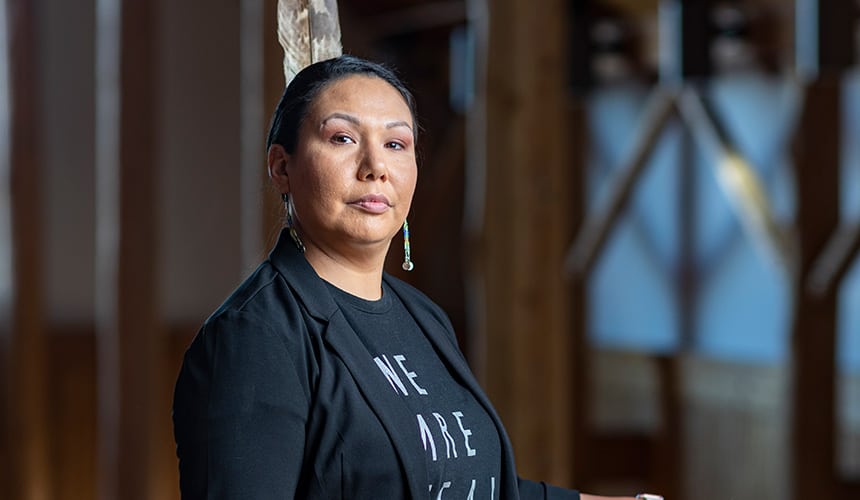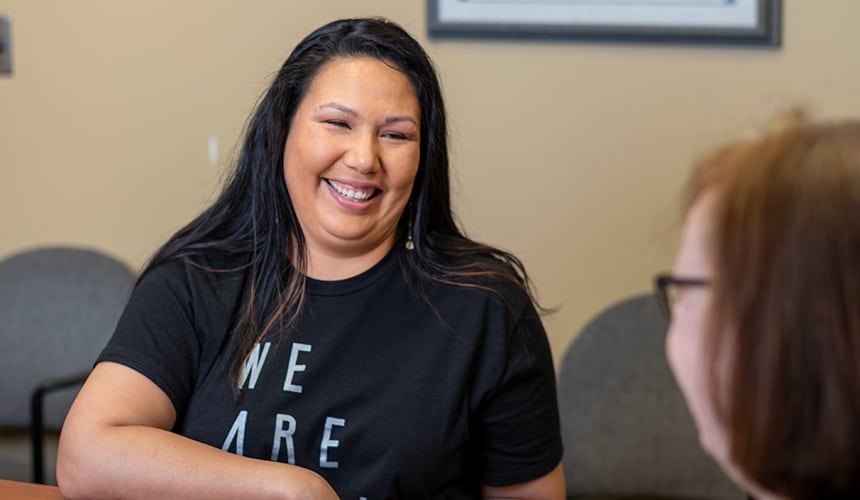Kiana Beaudin
From Personal Health to National Health Care
Kiana Beaudin BS2010, MPAS2015 got into the field of health care because of her father.
“My dad got cancer,” she says. “And I was daddy’s girl.”
Beaudin grew up in Madison, where her mother was a librarian in the UW’s Helen C. White Hall and her father was on the faculty at the Law School. He succumbed to cancer when she was just 13, and while he was ill, she accompanied him to appointments, amazed at the technology but more impressed with the professionals who worked so hard to heal him. She considered medical school but decided to focus on becoming a physician’s assistant rather than an MD. “That was a better fit for me,” she says. “It appealed to me because I would be able to spend more time with my patients than a typical MD would.”
At the UW, Beaudin showed a particular talent for surgery, and an instructor told her that if she didn’t pursue a career in surgery, she’d be wasting her talent.
“I had to make a decision,” she says. “Do I go into surgery and have the opportunity to make a lot more money and do something that I enjoy and have a talent in? Or do I go and provide care for my people and take less pay, but get rewarded in a way that you can’t put a monetary value on? I decided to come and work for my tribe, and I don’t regret it at all.”
After graduation, she spent a decade in practice before she received a higher calling. In the summer of 2019, Marlon WhiteEagle, the president of the Ho-Chunk Nation, asked Beaudin to take on the role of executive director of health. She accepted, not out of ambition but obligation.
“It was the way in which he asked me,” she says. “He didn’t say, ‘Oh, hey, do you want to take this position?’ If he had, I’d have said no, I don’t want to do that, because patient care is my passion. I never thought about leadership and policy. But he said, ‘I need you to help. I’m asking you to help our people.’ When he framed it that way, I felt I couldn’t refuse.”
Less than a year after she accepted the role of executive director, the COVID-19 pandemic arrived, upending public health efforts around the world. Beaudin had begun her job with straightforward goals: to cut red tape and encourage more preventive health. Once COVID arrived, she found herself dealing with the pandemic in many ways. COVID restrictions shut down casinos — a major employer for the Ho-Chunk — which led to layoffs and a broader spread of health issues.
“When I started the position, I was concerned about my lack of administrative background,” she says. “However, I ended up not only being the executive director but also our incident commander and our health officer.”
Beaudin plans to step down from the executive director position in July 2023, when the current presidential administration ends. Though she’s proud to have served her community in a time of extreme need, she wants to return to her patients and to regular hours.
“I covered for somebody a couple of weeks ago and saw patients for an afternoon,” she says. “I loved it. I thought it was going to take me a while to get back in the swing of things, but I fell right in the groove, and it felt carefree. I’m looking forward to going back.”
 68° F
68° F
